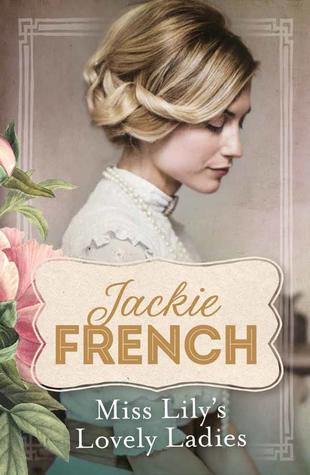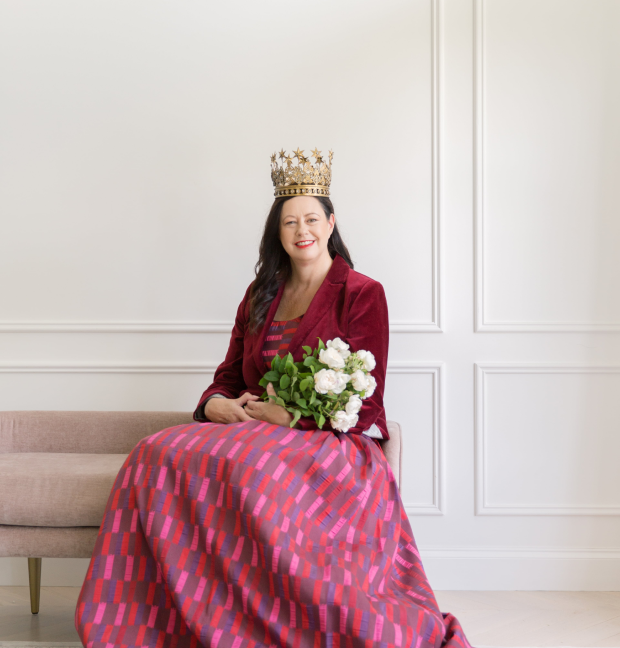
The blurb (from Goodreads):
Inspired by true events, this is the story of how society's 'lovely ladies' won a war.
Each year at secluded Shillings Hall, in the snow-crisped English countryside, the mysterious Miss Lily draws around her young women selected from Europe's royal and most influential families. Her girls are taught how to captivate a man - and find a potential husband - at a dinner, in a salon, or at a grouse shoot, and in ways that would surprise outsiders. For in 1914, persuading and charming men is the only true power a woman has.
Sophie Higgs is the daughter of Australia's king of corned beef and the only 'colonial' brought to Shillings Hall. Of all Miss Lily's lovely ladies, however, she is also the only one who suspects Miss Lily's true purpose.
As the chaos of war spreads, women across Europe shrug off etiquette. The lovely ladies and their less privileged sisters become the unacknowledged backbone of the war, creating hospitals, canteens and transport systems where bungling officials fail to cope. And when tens of thousands can die in a single day's battle, Sophie must use the skills Miss Lily taught her to prevent war's most devastating weapon yet.
But is Miss Lily heroine or traitor? And who, exactly, is she?
My Thoughts:
I’ve long been a fan of Jackie French’s historical novels for children, and so I was intrigued when I heard she had written a book for adults. The cover was gorgeous and the blurb told me it was set during World War I, one of my favourite historical periods, and so I bought it to read on my summer holidays.
The novel tells the story of Sophie Higgs, whose father made his fortune making tinned corned beef. When Sophie falls in love with the boy-next-door, her father decides to send her to England for the Season, to give her a chance to see the world and meet other men. She is to spend a few months with the mysterious Miss Lily first, however, to be taught how to be charming. The idea is not just to win themselves rich and aristocratic husbands, but also to use feminine wiles to affect change in the world. She and three other young women spent their days learning how to walk, how to sit, how to hold a discussion whilst eating, and how to placate and persuade.
There is a quote from various letters at the beginning of each chapter. The first reads:
“… that was when I realised that war is as natural to a man as chasing a ball on a football field. War is a scuttling cockroach, something that a woman would instinctively stamp on. Women bear the pain of childbirth, and most deeply feel the agony of their children’s deaths. Could one marshal women to fight against the dreams of war? But women have no power, except what they cajole from men.”
Miss Lily, 1908
As Sophie learns and make friends, the world lurches ever closer to war. Sophie and the other ‘lovely ladies’ must dig deep within themselves if they are to survive. And, meanwhile, Sophie falls in love …
It’s a big book but the pace rarely flags. Sophie is a captivating character, being determined, clever and kind. The historical setting is brilliantly rendered, and I just adored Miss Lily and her wry and wise reflections on life and society. I loved the book right up until the very end, when the romantic promise of the story failed to materialise.
This was partly because Miss Lily’s Lovely Ladies is the first in a series, and so some narrative threads were left dangling. It was also, I think, because Jackie French did not want to give her readers too predictable an ending. A lot of writers avoid a happy ending because romantic love in novels has been so often equated with plots that are trite or sentimental or melodramatic. This is such a shame. The longing for love is such a universal human desire, and should be celebrated. I suspect that Sophie will find true love and happiness after many more suspenseful and dangerous adventures in Book 2 & 3. I hope so.
You might also like to read my review The Ashford Affair by Lauren Willig:
https://kateforsyth.com.au/what-katie-read/vintage-book-review-the-ashford-affair-by-lauren-willig

